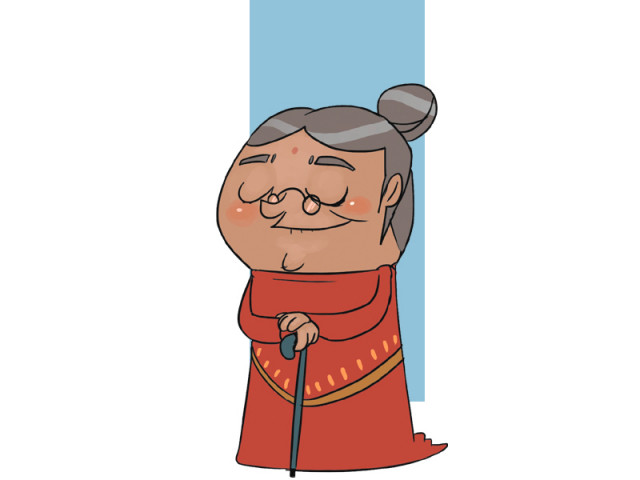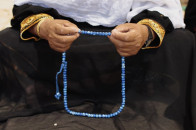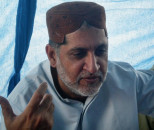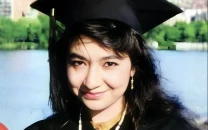Daadi helps connect Indian, Pakistani families
UK-based founders of social ancestry website create an interesting tool to bring long lost families back together.

Daadi helps connect Indian, Pakistani families
There is something genuinely comforting about old photographs; sepia toned images of smiling grandparents and great aunts and uncles lounging about at home in colourful tie-dyed shirts and frayed bell-bottoms invite you to trot merrily down memory lane and romanticise the past.
If you’ve been through your daadi’s dusty old photo albums, you’ll realise that there are many faces you don’t recognise; some who passed away before you were born, or those who just lost touch with the family. “He’s my aunt’s cousin from Lucknow,” your daadi will tell you, pointing to an unfamiliar face in a picture, adding that she never saw him after Pakistan was created and she moved to Karachi. The partition split many families who ultimately lost touch, with some members choosing to start afresh in Pakistan and others staying back in India. But the UK-based founders of a social ancestry website, whosthedaadi.com (Daadi), seem to have created an interesting tool to bring long lost families back together.
“The aim is to help people reconnect with lost loved ones,” co-founder Saima Mir says about the venture. “Pakistanis and Indians have spread across the globe and many have lost touch with the people they grew up with. India and Pakistan are intrinsically connected with each other and in essence, are one family. I hope that Daadi can help us re-connect and find a way to heal the wounds of the last 65 years.”
“We’re a social ancestry-based website,” says Alex Street, Mir’s partner for Daadi, comparing it to the census-based ancestry website ancestry.com that is approaching 40 million users. “We use data from our users to construct family trees, so our model is different but the overriding headline demand to know ‘who we are’ and ‘where we’ve come’ from is the same. That’s what our users are telling us — they value the free tools we provide them and we’re focused on delivering what our users value.”
Street describes the duo as “geeks with creative eyes and business brains”. While Mir studied Biomedical Sciences at university and Engineering for her postgraduate degree, she ended up pursuing a career in journalism, working for the BBC and freelancing for The Guardian. Street has always worked in the media, web and technology space, but his academic background is creative as he studied Literature. He now splits his time between Daadi and a UK games development company called Chunk.
Mir explains that as a child, she spent a lot of time with her grandmother in Karachi, “sitting on the lawn, eating fruit, and listening to her stories about her parents and grandparents”. When her grandmother developed Alzheimer’s and started to lose her memory, Mir says the reality struck that she was going to lose all that history; the names and places where her family comes from. “If you’re a Pakistani, it’s almost impossible [to trace ancestry] — especially if you live abroad. So, I came up with the idea of a wiki where people can upload their family trees, names, dates, places, pictures, audio memories, videos. Daadi will eventually become a searchable database and a permanent record of family.”
“Meeting Alex was a total fluke,” Mir adds, explaining that they connected through Twitter. “I built a castle in the air and he’s put a foundation underneath it — it’s brilliant!”
Hira Zahoor, the director of the oral history project at the Citizens Archive of Pakistan (CAP), feels that Daadi will help people from across the border develop deeper bonds. “I think it’s a great idea,” she says, explaining that her mother is from India and that strict visa restrictions make it difficult for her to visit her siblings there. “The power of social media and the virtual world is making it much easier to connect with people.” Zahoor points out that her mother is eager to connect with her relatives across the border via Skype and Facebook, and looks forward to wedding pictures that are uploaded by close family that she cannot meet. Mir’s dream for Daadi hopes to virtually bridge these geographical distances. “I want Daadi to become a mobile app that can be used at weddings and parties,” she says. “Pakistani weddings are such grand affairs and our families are so big that it can be difficult to remember who is related to who and how. A mobile app that lets you take a picture and attach it your family tree instantly will work brilliantly.”
Published in The Express Tribune, September 5th, 2012.



















COMMENTS
Comments are moderated and generally will be posted if they are on-topic and not abusive.
For more information, please see our Comments FAQ